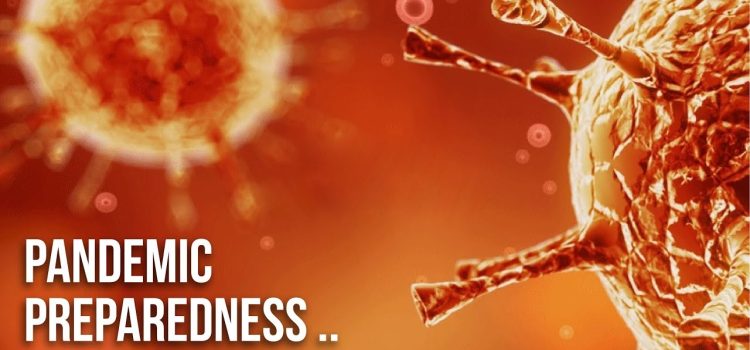
The COVID-19 pandemic has been a wake-up call for the world, exposing vulnerabilities in global health systems and revealing the critical need for better preparedness. As we reflect on the events of the past few years, it is essential to assess the lessons learned and identify strategies to enhance global pandemic preparedness. This article will explore key aspects of pandemic preparedness, including early detection, international cooperation, healthcare infrastructure, and public communication.
Early Detection and Surveillance
One of the most significant lessons from the COVID-19 pandemic is the importance of early detection and surveillance. The speed at which a virus can spread highlights the necessity for robust monitoring systems. Countries with well-established surveillance mechanisms were able to identify and respond to COVID-19 more effectively. For instance, South Korea’s extensive testing and contact tracing efforts were instrumental in controlling the virus’s spread early on.
Investing in advanced technologies such as artificial intelligence (AI) and big data analytics can enhance early detection capabilities. AI-driven models can predict outbreaks by analyzing patterns in real-time data, while big data can help track the spread of diseases more accurately. Strengthening global networks for disease surveillance and encouraging transparency in reporting are also crucial steps toward improving early detection.
International Cooperation
The COVID-19 pandemic underscored the importance of international cooperation in addressing global health crises. Viruses do not respect borders, and a coordinated global response is essential to mitigate their impact. The World Health Organization (WHO) played a pivotal role in providing guidance and coordinating efforts, but the pandemic also revealed gaps in international collaboration.
Moving forward, strengthening international health regulations and fostering partnerships between countries will be vital. Sharing information, resources, and expertise can help countries respond more effectively to pandemics. Initiatives like the COVAX facility, which aims to ensure equitable access to vaccines, demonstrate the power of global solidarity in combating health crises.
Healthcare Infrastructure
The pandemic exposed significant weaknesses in healthcare infrastructure worldwide. Many countries faced shortages of essential supplies, including personal protective equipment (PPE), ventilators, and hospital beds. Healthcare workers were overwhelmed, and health systems struggled to cope with the surge in patients.
Investing in resilient healthcare infrastructure is crucial for future pandemic preparedness. This includes increasing the capacity of healthcare facilities, ensuring adequate stockpiles of essential supplies, and investing in training and support for healthcare workers. Strengthening primary healthcare systems can also help manage the burden of pandemics by providing timely and accessible care to affected populations.

Vaccine Development and Distribution
The rapid development of COVID-19 vaccines was a remarkable scientific achievement, but the distribution process highlighted significant challenges. Inequities in vaccine access were stark, with wealthier nations securing the majority of doses while many low- and middle-income countries struggled to obtain vaccines.
To address these disparities, it is essential to invest in global vaccine manufacturing and distribution capabilities. Supporting initiatives that promote technology transfer and local production can help ensure that vaccines are accessible to all. Additionally, fostering public trust in vaccines through transparent communication and addressing vaccine hesitancy are critical components of successful vaccination campaigns.
Public Communication and Trust
Effective public communication is a cornerstone of pandemic preparedness. The COVID-19 pandemic demonstrated the importance of clear, accurate, and timely information in managing public health crises. Misinformation and conflicting messages can undermine public trust and hinder response efforts.
Governments and health organizations must prioritize transparent communication and engage with communities to build trust. Utilizing multiple channels, including social media, traditional media, and community networks, can help reach diverse audiences. Public health campaigns should be culturally sensitive and tailored to address the specific needs and concerns of different populations.
Research and Innovation
The pandemic spurred unprecedented levels of research and innovation, leading to breakthroughs in diagnostics, treatments, and vaccines. However, it also highlighted the need for sustained investment in research and development (R&D) to prepare for future pandemics.
Encouraging collaboration between academia, industry, and government can accelerate the development of new technologies and solutions. Establishing global research networks and funding mechanisms dedicated to pandemic preparedness can ensure that the world is better equipped to respond to emerging threats. Additionally, promoting open access to research data and findings can facilitate knowledge sharing and drive innovation.
Addressing Social Determinants of Health
The COVID-19 pandemic brought to light the significant impact of social determinants of health on pandemic outcomes. Factors such as income, education, housing, and access to healthcare influence individuals’ vulnerability to infectious diseases. Marginalized and disadvantaged populations were disproportionately affected by the pandemic, exacerbating existing health inequities.
Addressing social determinants of health is essential for building resilient communities and improving pandemic preparedness. Policies that promote social equity, access to healthcare, and economic support can help mitigate the impact of future pandemics on vulnerable populations. Integrating social determinants of health into public health strategies can lead to more comprehensive and effective responses.
Conclusion
The COVID-19 pandemic has provided valuable lessons in global pandemic preparedness. Early detection and surveillance, international cooperation, healthcare infrastructure, vaccine development and distribution, public communication, research and innovation, and addressing social determinants of health are critical components of a robust preparedness strategy. By learning from the past and investing in these areas, the world can better prepare for and respond to future pandemics, ultimately safeguarding global health and well-being.










